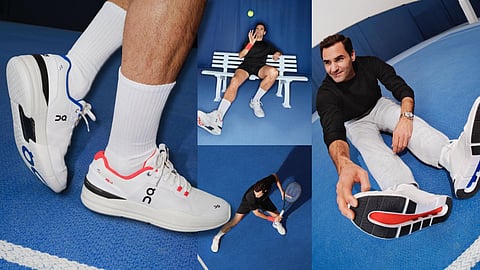
- NEWS
- the EDIT
- COMMENTARY
- BUSINESS
- LIFE
- SHOW
- ACTION
- GLOBAL GOALS
- SNAPS
- DYARYO TIRADA
- MORE

Roger Federer is widely celebrated for his dominance on the tennis court, but his impact off it has been equally remarkable. Born to a Swiss father and a South African mother, both of whom worked in pharmaceuticals, Federer picked up a tennis racquet at age three. He quickly rose through junior ranks and turned professional in 1998.
His first major breakthrough came in 2003 with a Wimbledon singles title, and over a 24-year career he spent 310 weeks as the world’s top-ranked men’s singles player, winning 103 tournaments and earning nearly $131 million in prize money.
Federer’s financial success extends far beyond his tournament winnings. Forbes reported that he amassed roughly $1 billion from endorsements, appearances, and business ventures during his playing career, making him the highest-paid tennis player for 16 consecutive years.
In 2020, his pretax earnings were reported at $106.3 million, more than double those of fellow tennis stars Novak Djokovic and Rafael Nadal. Federer is one of just seven athletes to achieve over $1 billion in career pretax income while still active, joining the ranks of LeBron James, Tiger Woods, Phil Mickelson, Cristiano Ronaldo, Lionel Messi, and Floyd Mayweather.
Federer’s relationship with Swiss sportswear company On began in 2020 when he learned of the brand and invited the founders, David Allemann, Olivier Bernhard, and Caspar Coppetti, to dinner. During the meeting, the founders proposed partnering with him, and Federer eventually invested his own money while taking an active role in creating a tennis-specific line. This gave him the intimacy of an athlete designing one of the most essential pieces of gear for his craft, tennis.
After leaving Nike in 2018 for a ten-year, $300 million apparel deal with Uniqlo, Federer had the opportunity to explore this new partnership. In 2019, he acquired an equity stake in On and helped develop both an on-court tennis shoe and a lifestyle apparel line.
The move paid off handsomely. On went public on the New York Stock Exchange in 2021. Federer’s estimated 3 percent stake is now worth over $375 million, as the company’s market capitalization approaches $15 billion.
“Roger was the accelerator,” Marc Maurer, then On’s co-CEO, told Forbes in 2023. “We basically wanted to open the door, and we were clear that tennis is the next sport. We were very fortunate that Roger embarked on that mission together with us.”
Federer’s business acumen extends to other areas as well. In 2013, he co-founded management company Team8 alongside his longtime agent Tony Godsick. The group later launched the Laver Cup in 2017, a team tournament pitting European players against competitors from the rest of the world.
Now a fixture on the ATP Tour, the Laver Cup has consistently generated significant revenue, with the 2024 edition in San Francisco expected to surpass $20 million from sponsorships and ticketing. Federer also invested in the plant-based food startup NotCo, participating in funding rounds that valued the company at $1.5 billion and attracted other celebrity investors such as Lewis Hamilton and Questlove.
Federer’s appeal to brands remains unmatched. He works with over a dozen partners from his playing career, including NetJets, Oliver Peoples, and UBS. With 43.5 million social media followers and engagement rates far surpassing those of Djokovic and Nadal, he remains one of the most marketable athletes worldwide.
The origins of On reflect innovation and experimentation. The company’s first prototype, nicknamed “Frankenstein,” was pieced together from household materials but offered a unique running experience. Co-founders Bernhard, Allemann, and Coppetti launched On in Zurich in 2010, focusing on runners willing to pay a premium for performance and comfort. By 2020, the company generated $425 million in revenue, and the IPO further cemented its position as a global brand.
Federer’s collaboration with On has been hands-on and deeply involved. “They are smart, really nice people with a passion for what they do,” Federer says. “They are amazingly nimble, they adapted so quickly to the pandemic and the requirement to shift to e-commerce.” He adds, “We work very closely together on product design. They really listen and they want to get as close to perfect as possible.”
During pandemic lockdowns, Federer appreciated the chance to spend more time with the On team. “It’s incredible that this wonderful company is headquartered so close to where I live. Because the pandemic forced me to be home so much for the last 18 months, I have had the opportunity to work with them much more than in normal times,” he told Forbes.
Through his strategic investments, partnerships, and personal involvement, Federer has built a model of athlete entrepreneurship. His work with On demonstrates how vision, engagement, and credibility can transform both a brand and an athlete’s financial trajectory, creating a partnership that benefits both sides and solidifies his legacy beyond tennis.
